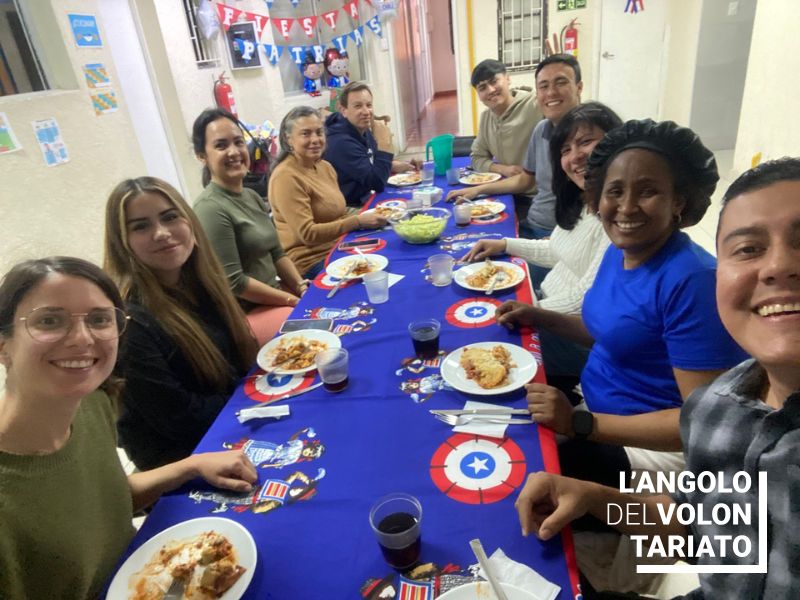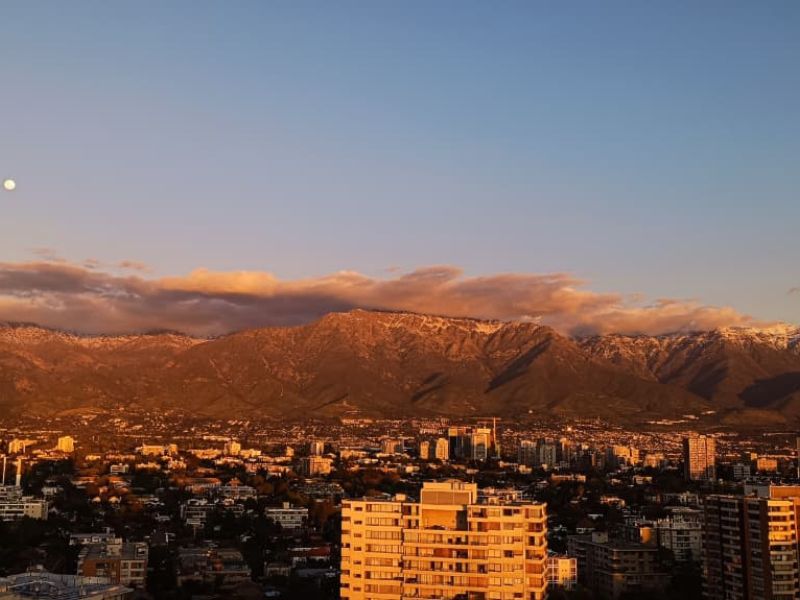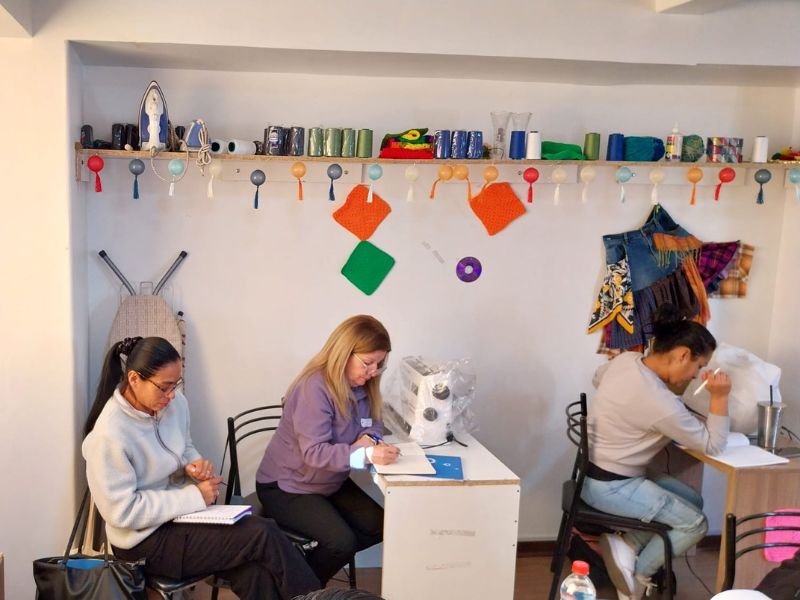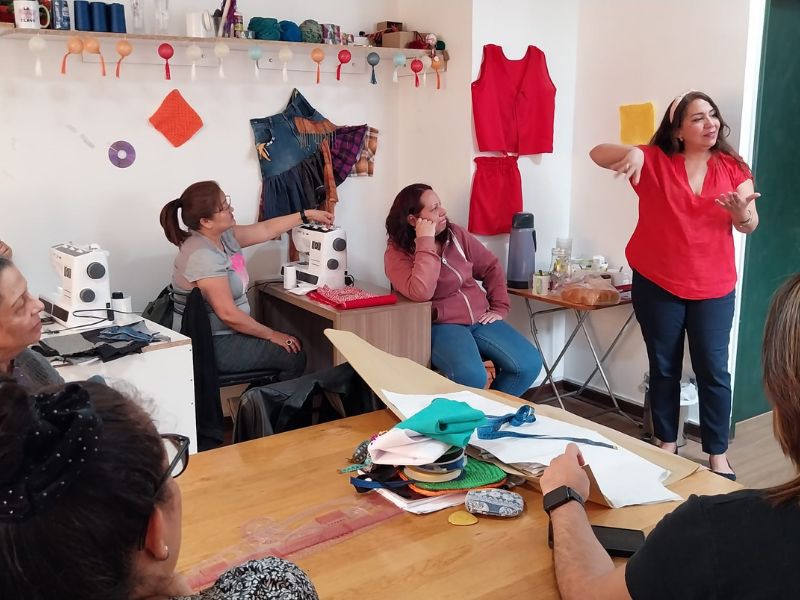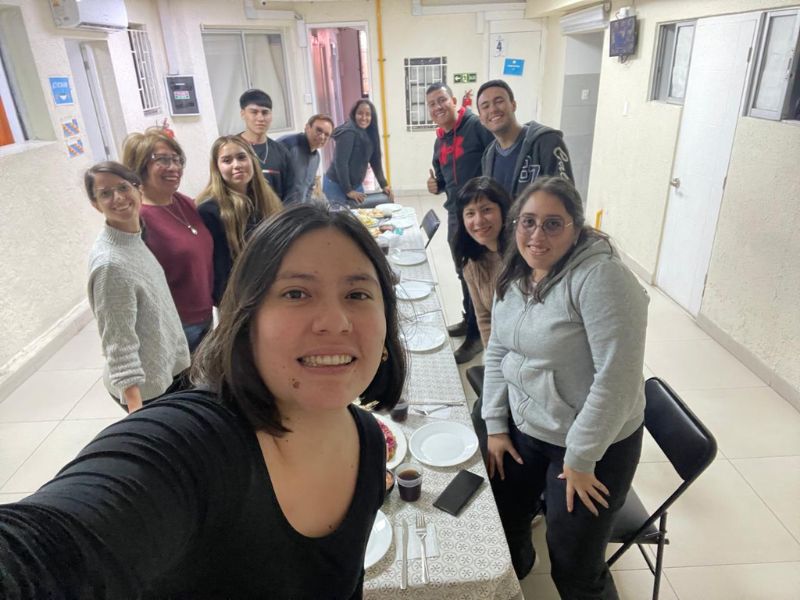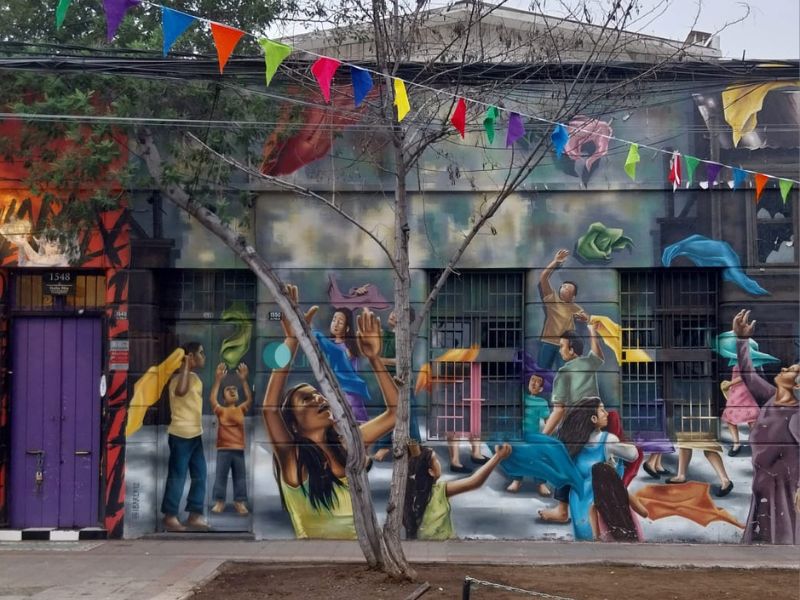Si vas para Chile
I am Marta, I am 29 years old and live in Milan. I am an educator and pedagogist and work for a social cooperative where I am involved in the management and field activities of educational projects. I also collaborate in a social theater project, having discovered in recent years a passion for theater and a desire to integrate it into my work as well.
For the past three months, I have been in Santiago, Chile, at the Scalabrinian mission where I am serving as an international volunteer on an ASCS referral.
The decision to leave for international volunteering started from a long-present desire that resurfaced at a time when I felt an urgency to unbalance myself, a need to change my center of gravity and therefore points of reference.
Around the time I was beginning to consider leaving, I met a friend who works with ASCS. I had been recently acquainted with the association because of its commitment with respect to migration issues, the rights of people on the move, its focus on intercultural education, and finally its work on European borders. I was very interested in ASCS’s approach in these directions, and so I decided to participate in the training course for international volunteers.
Participating in the course allowed me to be accompanied together with the group to reflect on the motivations for the trip, my desire and also to come to terms with some prejudices and fears. The explication of all this was very important: it allowed me to take more ownership of my choice and to leave with an awareness of some dynamics to pay attention to.
I set out with the desire to put myself in service, knowing that entering a new reality means to some extent losing one’s references, it means encountering and sometimes clashing with a reality that challenges one’s knowledge and competence, it means being guided by the new situation to understand how one’s specificities, abilities and limitations meet a different cultural context. One must first listen and hear oneself as one learns a new grammar (both linguistic and relational) and from there figure out what space to occupy and how to actually put oneself in a position of availability that welcomes what comes and the people one encounters. And, first of all, it is necessary to let oneself welcome.
Here in Chile, I am working alongside the team of Ciami (Integrated Center of Attention to the Migrant) of the Scalabrini Foundation. I arrived at a time when the project was transforming, so I was able to see its evolution and participate in iteration in some of the design thoughts and phases. The Ciami is a day center that caters to the migrant community; it is a place of support where primary aid such as food or clothing, free psychological care or orientation to other services in the city is provided. Ciami is also a job training center, currently active with projects that focus mainly on supporting women’s micro-entrepreneurship. Many women with a history of migration, whether more or less recent, find it more difficult to obtain employment than male companions or family members; mainly because, as is often the case in other contexts as well, the burden of caring for children or other relatives still falls mainly on women. We meet women who in their country of origin were professors, nurses, lawyers, economists, whose university degrees are not recognized and therefore find themselves in the condition of not being able to put their expertise to use. We meet women who, despite such fatigue, have the ability to rethink themselves and bring other skills to bear and thus invent forms of domestic entrepreneurship. It then becomes important to be able to support them with communities of learning, caring and mutual support, and this is one of Ciami’s missions: to be a place of connections that facilitate the exit from the condition of exclusion.
Another important part of my experience here in Santiago is sharing with the families housed in the Family Residence that the Foundation runs and where I go every day for breakfast, lunch and dinner. Breakfast and lunch are the moments when you share with the team that works in the Residence, a team that is itself intercultural, is itself a migrant team. With different motivations, degrees of difficulty or possibilities, one shares the fact of being far from the country of origin, from some affections, from the flavor of one’s native home. This experience of detachment, albeit with due differences, allows the sharing of some similar lives and experiences, some challenges, some pains or longings. And this lack either stiffens or opens up to the other, making one’s identity more available to be contaminated.
The most striking example of this contamination is language: one of the most interesting things about contexts where you meet people from different countries is that the language you learn is contaminated by the nuances of meaning or words specific to each person. There are some affectively charged words that don’t have the same flavor and emotion if said any other way; language is kneaded with experience, so pooling the meanings and feelings attached to these allows people to get closer and share. And so, the Spanish that is spoken becomes a mixture of Chilean, Venezuelan expressions with some incursions of Portuguese.
In the Residence, stories, food, spaces are shared, just as the challenges of a normal family are shared, but multiplied by four. Then it happens that in times of need for one of the families, the others network for support and share the challenge, whether it’s preparing for a baptism party or support in caring for the children when the parents are in the hospital caring for one of the children.
Finally, I left with a desire to get to know a country, Chile, that for various reasons called a lot of my attention, with a curiosity to learn about migration dynamics and how Chilean society relates to the challenge and reality of living together. I found a Chile that like other places in the world on the one hand welcomes, protects, and listens to the life stories of those who arrive; on the other hand, it rejects, shuts down, and indulges in false and sometimes violent rhetoric.
There are rhetorics that hurt and cage even when we think we are in a healthy part of society and have an open mind, which we assimilate anyway, and which contribute to prejudice and resentment. It is when these are replaced by concrete sharing of life, hugs and eyes-to-eyes that rhetoric loses its power; I am grateful to have been able to see and experience it here.


